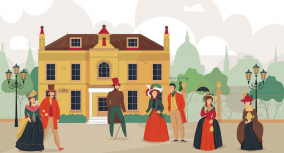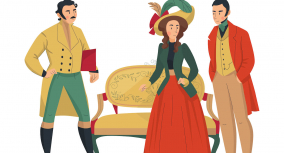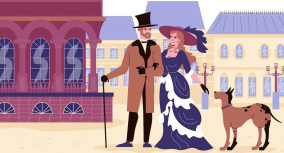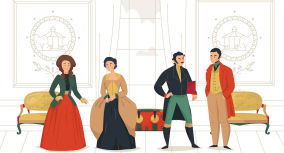Voltaire influenced the American Revolution by contributing critical concepts that helped the Founding Fathers build a new form of government. Voltaire is known for rebelling against the Church and most state institutions. He advocated for social reform and equality, which impacted the American government and inspired many statements of the first Constitution.
More Information
In his Essay on Manners, 1756, Voltaire wrote: “All men have equal rights to liberty, to their property, and to the protection of the laws.” Now compare this phrase with the wording of The Massachusetts Constitution, 1780: “All men are born free and equal, and have certain natural, essential, and unalienable rights.” The cited paper is the oldest existing constitution in the world.
Voltaire’s writings also entailed the decrease in the authority of the Catholic Church. The modern western society we now live in is secular thanks to his life and ideas. But there were many other social changes Voltaire agitated for.
He was a John Locke follower in the meaning that he saw the government’s purpose in the protection of the people’s liberties. Free trade, freedom of press, speech, and religion are only some things we perceive as natural nowadays. But in Voltaire’s times, they were out of the question. Besides, the rejection of feudal privileges was also one of his ideals.
The American Revolution (1765 – 1783) was an ideological and political upheaval against the feudal British and their colonialist aims. Voltaire’s concepts of freedom and reason and some other Enlightenment philosophers’ thoughts eventually led to establishment of the United States Bill of Rights.
Thank you for reading this article! If you are looking for essay title ideas on Candide, take a look at our essay topic collection or try using our title-generating tool.






















Thanks for the Massachusetts Const extract. But this article has at least 3 errors. Neither Voltaire nor the Founders were focused on the Catholic Church. Protestant sects ruled other countries and had also massacred each other over the previous two centuries. Their goal was getting religion out of the laws entirely. “A Locke follower” is also exaggerate. Voltaire appreciated his Essay on Human Understanding, but Locke only advocated that the Protestants tolerate each other; not Catholics or atheists. And though vestiges of feudalism it had mostly died out by the 15th. Absolute monarchy was the issue, ruling by whim. Voltaire urged fair laws that applied to everyone, including monarchs and clergymen.